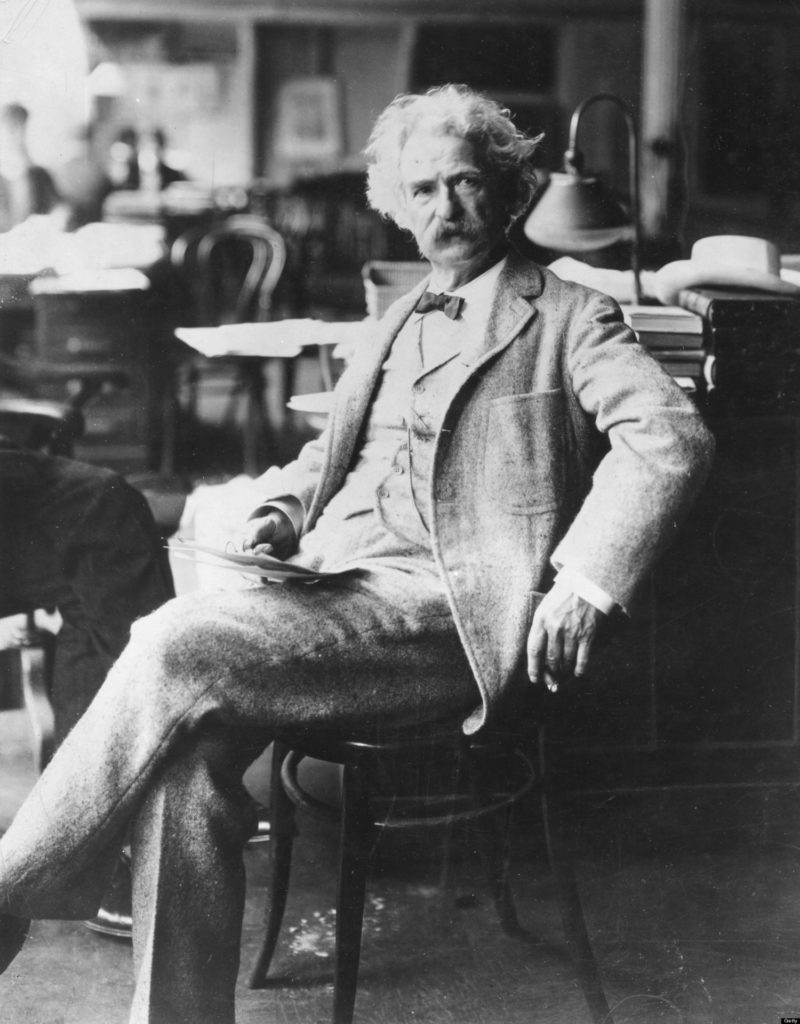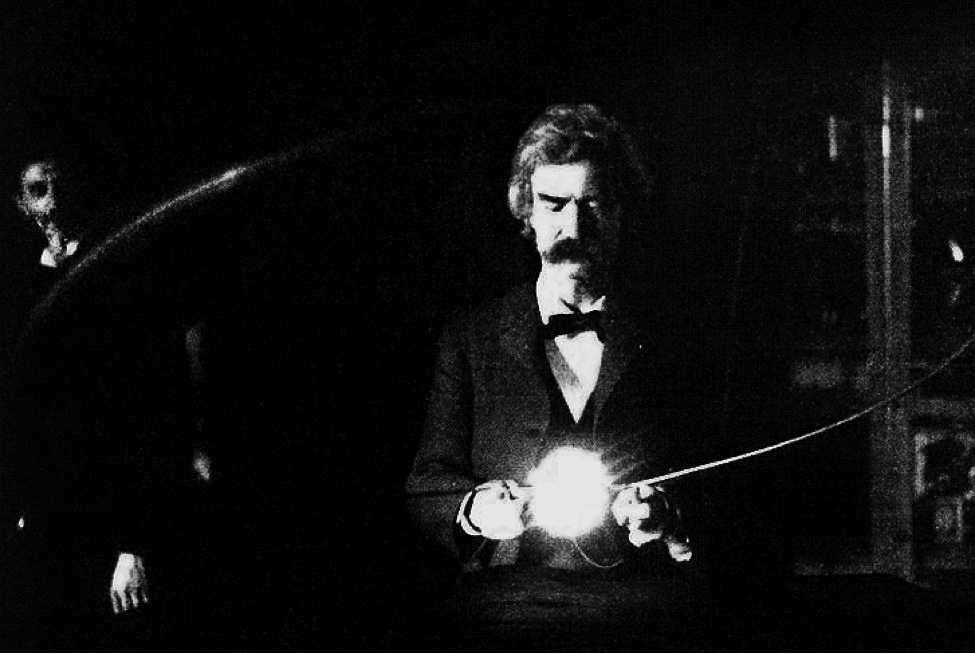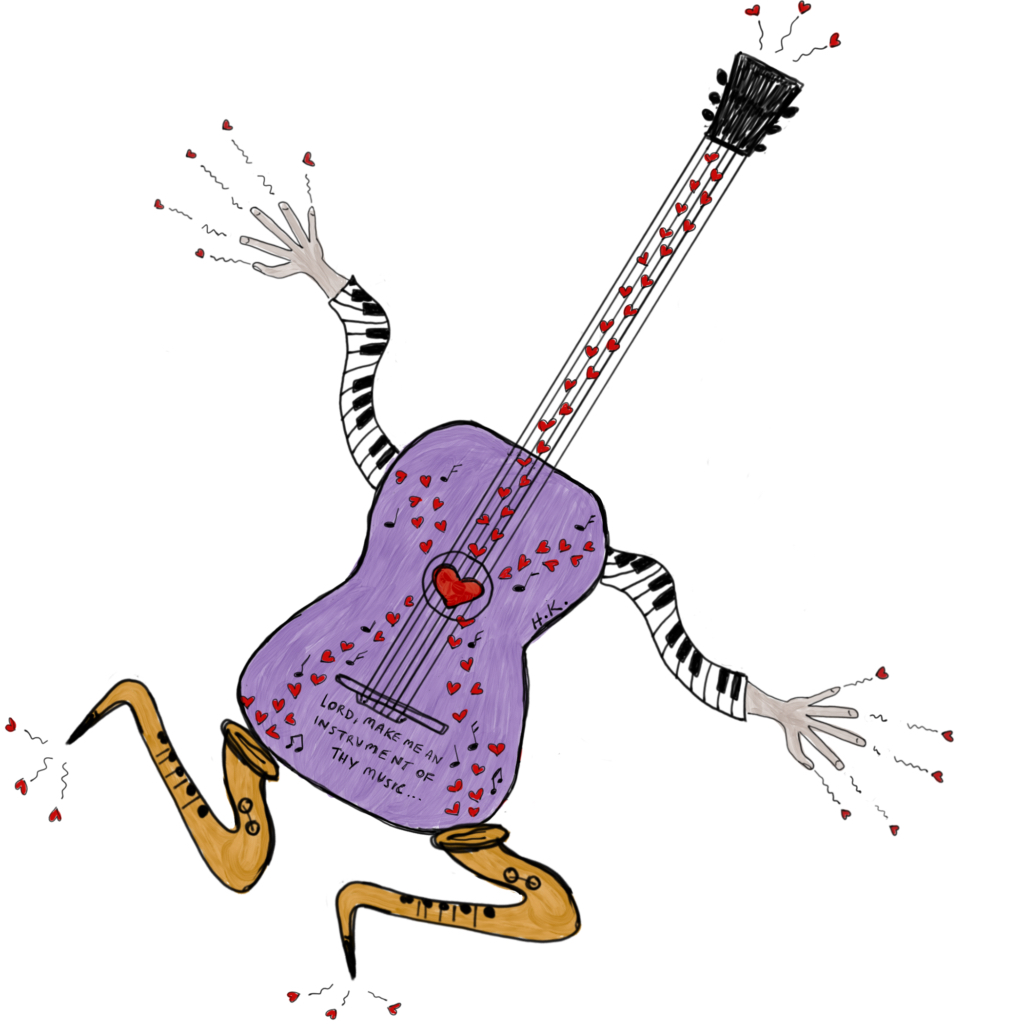God On the Line: A Lesson from Mark Twain’s “Book of Life”
A few weeks ago, Brad dreamed that he met famous American writer, Mark Twain (1835-1910), whose real name was Samuel Clemens. In the dream they were both young boys playing along the Mississippi River in Hannibal, Missouri where Twain grew up (Brad grew up roughly a century later about three hours from Hannibal):
Twain said, “Our childhood was alike in so many ways. That’s why we are related.” We both laughed and marveled at similar experiences we had enjoyed as well as those we had endured. I hoped he wouldn’t want to go fishing. Even though I enjoyed fishing with my grandfather as a boy, today I get squeamish seeing a hook in a fish. Twain never mentioned fishing but was more interested in our shared church life and how we both early on had a keen eye for detecting hypocrisy and stupidity.
When night arrived, we had both aged and Mark Twain had already crossed to the other side. Hillary was with me now and we found Twain in the mystical library. He handed us a manuscript and said, “I have been working on this ever since I came over. It’s my Book of Life.” He further added, “My friendship with Tesla was important. It’s all about electricity, my friends. Stay on that path.”
Hillary and I immediately started reading the book, devouring it with complete focus and utmost attention. Forgetting where we were and who we were with, we combed over every page. It was an extraordinary work and we knew our lives would be changed as a result of reading it, granting us greater clarity, complexity, and hilarity. We deeply absorbed this final manuscript written by Mark Twain on the other side.
After reading the whole book in what seemed like the longest dream of my life, we turned to Mr. Twain who was dressed in his classic white suit. Smiling, he said, “That’s the Book of Life. Now you know.” In that instant, we forgot everything we had read. No matter how hard we tried to remember, we couldn’t remember a single word. Twain laughed as he repeated, “Now you know.” Then he leaned over to add: “Above all else, make sure God is on the line.”

Brad woke up stunned by the deep peace and wild excitement Mark Twain’s book had sparked in us, but dizzy and confused how it had disappeared so quickly from our conscious minds. However, we will never forget his last words: “Above all else, make sure God is on the line.” Then we searched the internet for anything we could find about Mark Twain’s interest in electricity. We already knew that he had been a friend of Nikola Tesla. To our delight, we found this passage written by Professor Jennifer Lieberman:
Samuel Clemens was fascinated with electricity for much of his professional life. Shortly after he adopted the moniker “Mark Twain,” he described one of his influences, the Reverend Edwin Hubble Chapin, as a human powerhouse: “There is an invisible wire leading from every auditor’s soul straight to a battery hidden away somewhere in that preacher’s head, and down those wires travels in ceaseless flow the living spirit of words that might fall cold and empty and meaningless from other lips.”
Sacred Ecstatics welcomes Mark Twain to our Guild and all the ways he learned to handle electricity:

God On the Line
What does it mean to take Mark Twain’s advice and make sure God is always on the line? You can already guess it has something to do with electricity, vibration, and communication. But we don’t recommend you go digging through Tesla’s written manuscripts searching for spiritual insight. And be careful on the Internet, full as it is of New Age “raise your vibration” hogwash and trivial energy quotes falsely attributed to Albert Einstein.
In our experience it’s better to follow the pragmatic advice of the people who first learned to conduct spiritual electricity—the Bushman of the Kalahari. They, as well as other ecstatics around the world, share a simple but profound practice that has been lighting up the hearts of plugged-in spiritual people for thousands of years. Here it is: To keep God on the line, sing a holy song.

What renders a song “holy” is that it carries deep sacred emotion, which is inseparable from spiritual electricity and vibration. You sing a song in order to feel God on the line. As the Bushman doctors say, “the rope [connection] to God is a song.” When you sing a rope song, you feel a current in the line that runs between your heart and the heart of your Creator. This line is both a telephone line and an electrical line, and its singing current can deliver a sweet shiver even mightier than the Mississippi River.
Sing the kind of song that is both a prayer of joyful praise and a rescue lifeline in times of despair. A song that makes a sore heart soar, fills your body with sacred vibration, and readily blasts you into higher bliss. Mark Twain was known for singing “Negro spirituals” such as, “Swing Low, Sweet Chariot,” “Nobody Knows the Trouble I’ve Seen,” and others. We can guess why—the lyrics, melodies, and the way in which they are sung convey potent sacred emotion. These songs were composed and sung over many years by people wise in the ways of conducting spiritual electricity and keeping God on the line in the hardest of times.
You don’t need to know all the lyrics to a song—just a few lines will do. You can even put your favorite prayer line on a simple melody: “The Lord is my shepherd; I shall not want.” What matters is the feeling you put into it. You can sing aloud or, often better, just keep the song playing inside you. Opining holy things is not sufficient. If you long to live in the big room, find a way to pine for a song. The singers, rather than the cold talkers and nonmelodic thinkers, hold the key to unlocking the gifts of spiritual electricity.

Mark Twain was deeply spiritual, yet highly critical of religious hypocrisy as well as two-dimensional soulless and mindless zealotry. He was a true character from Missouri who had a nose for smelling “hogwash” and “soul butter.” The term “soul butter” came from Twain’s famous character, Huckleberry Finn, who used it to depict how a king or spiritual con man uses flattery to butter up his subjects so they can be easily hoodwinked and led to believe total hogwash. It also must be said, however, that there is a different kind of soul butter that washes the mind free of its piggish nature. This anointed musical gold delivers something real and palpable: a divine current that trembles the body and melts the heart. We invite you to embrace the only advice we remember from the holy bread-and-butter soul of Mark Twain. It’s now already singing as it calls forth the oldest ecstatic wisdom: “Above all else, make sure God is on the song line.”
Here is some homemade soul butter Mr. Clemens would surely have enjoyed:
-The Keeneys, June 9, 2019 (sketches by Hillary Keeney.)
